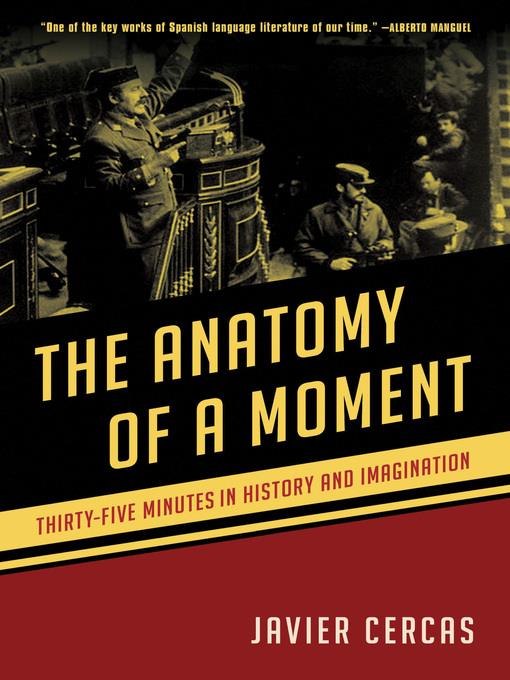
The Anatomy of a Moment
Thirty-five Minutes in History and Imagination
کتاب های مرتبط
- اطلاعات
- نقد و بررسی
- دیدگاه کاربران
نقد و بررسی

Starred review from December 20, 2010
The details and larger historic significance of the February 23, 1981, failed military coup "to protect" the Spanish monarchy against Spain's frail democracy continue to be elusive. This tour de force by Cercas brings all his novelist skills to bear as he probes an event not well-known to American readers. For those with a memory of the personages and events described, this book is definitive. Originally conceived as a novel to contain all the mythic dimensions of a fascist coup given additional life via the media (TV cameras captured the spectacle), this account's most striking aspect is the group portrait of the politicians and military personnel involved. Exiting prime minister Adolfo Suárez, handed the reins by his king five years before, is portrayed by turns as a JFK wannabe, a centrist phony, a stooge, an errand boy. Three-dimensional portraits are also painted of other big players, including Gen. Manuel Gutiérrez Mellado and the Communist Santiago Carrillo. Adding pained reflections on his father, a supporter of Suárez, Cercas conveys the complex levels of cronyism and the collective paranoia of post-Franco Spain as well as a study of modern European political power during the winding down of the cold war.

December 15, 2010
An intricately fashioned blow-by-blow account of the 1981 coup d'etat in Spain.
Spanish novelist Cercas (The Speed of Light, 2006, etc.) originally wrote a novel about the attempted coup of Feb. 23, 1981, an event in which the pistol-waving Lt. Col. Antonio Tejero and his Francoist Guardia Civil burst into the Congress of Deputies on national television and hijacked the elected parliamentarians until the next day. Frustrated by the myriad conflicting takes on the coup—was its failure a triumph of the fledgling democracy just getting on its feet after the death of the dictator Francisco Franco, or did it spell a collapse of democracy since no one raised much of a voice in opposition?—the author turned his obsession of the golpe de estado into this deeply reflective investigative work. The book is so close to its subject that it requires some knowledge of recent Spanish political history. The day of the coup, the deputies were voting to approve a new prime minister, after the resignation of Adolfo Suárez, whose crisis-plagued five-year term had followed Franco's death in 1975. Curiously, only Suárez remained in his seat (as the other deputies cowered under their chairs), while his deputy prime minister, Gen. Gutierrez Mellado, confronted the golpistas. Cercas sifts scrupulously through the "shimmering labyrinth" of evidence and offers some plausible motivation for the coup. The economy was in a tailspin, and the unrepentant Francoists had been itching for a change of course since Suárez took power. The Basque separatist movement, the ETA, had destabilized the army through terrorism, and several members of the Spanish intelligence service collaborated with the coup leaders. The king, however, quickly put the military officers in line, and the golpistas backed down without bloodshed. Cercas provides a creatively imagined account of an event that should be instructive to students of evolutionary democracy.
Many American readers may struggle with the dense narrative, but those who stick with it will become immersed in its near-hypnotic power.
(COPYRIGHT (2010) KIRKUS REVIEWS/NIELSEN BUSINESS MEDIA, INC. ALL RIGHTS RESERVED.)

























دیدگاه کاربران